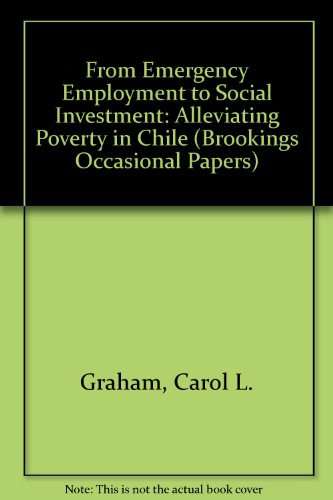During the recent transition to democracy in Chile, one of the most divisive issues has been the extent of poverty and the appropriate government response. As in the debate over human rights violations, at issue are the extent and severity of the problem, with ideology playing a major role in the positions taken. In the case of poverty, there is disagreement not only over measurement, but even more so over the fundamental principles underlying the design of social welfare policy in general. Proponents of neo-liberal economic thought see poverty as a direct result of individuals' inability to participate in the market economy and believe it can be resolved by meeting their basic needs. Most critics define poverty and its causes much more broadly and take into account socioeconomic structural and cultural factors. While these concepts are not necessarily at odds with each other, the resulting policy prescriptions tend to conflict. One explanation for the divisive nature of the debate on poverty in Chile is the nature of the regime that implemented the country's dramatic process of economic structural reform. Chiles steady growth rates, low inflation, and liberal trade and investment regimes are now looked upon as models for the rest of Latin America. Its political legacy, however, presents a paradox.
- ISBN10 0815732252
- ISBN13 9780815732259
- Publish Date 1 November 1991
- Publish Status Out of Print
- Out of Print 29 July 2005
- Publish Country US
- Imprint Brookings Institution
- Format Paperback
- Pages 42
- Language English
